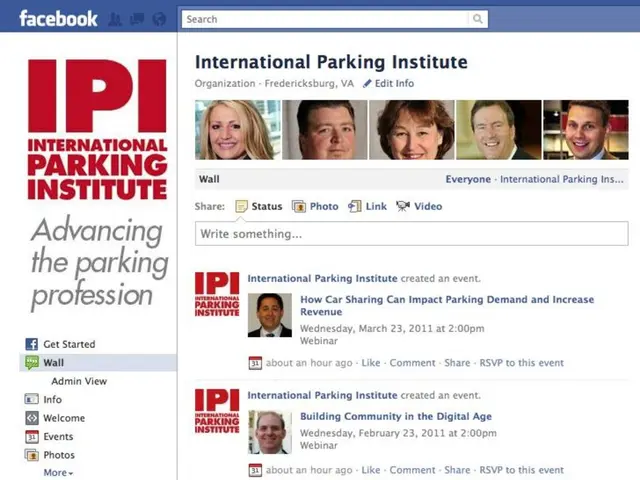Life's Journey: A Man's Relentless Pursuit of Love
In Yekaterinburg, the "Psychologies" forum was buzzing with top psychologists from all corners of Russia, sharing their insights. Among them was the renowned motivational trainer, Irina Kovaleva, known for her 25-year practice. She captivated the audience with a talk on unconditional love and how our past experiences shape our children's futures.
In a heartwarming anecdote, she recounted a client who thought his wife loved him because she listened to him and fed him. This anecdote emphasized the importance of understanding love beyond simple acts of care and support.
Love: A Personal Definition
Love, for many, is a deeply personal concept. Some express it through caring actions, while others prefer words or gifts. For instance, Kovaleva's husband demonstrates his love through taking care of her meals and leaving heartfelt notes. It's fascinating how our unique upbringing significantly influences how we perceive and express love.
The Power of Childhood Experiences
Childhood experiences and the love we receive shape our beliefs about love, life, and ourselves. This imprinting process, common among humans, birds, and animals, is almost like a basic programming of our minds.
A child absorbs everything around them during their first three years of life, and these impressions set the stage for their understanding of love and life in general. For example, a negative environment might lead a child to believe that all men are jerks, while a positive one fosters beliefs centered on love, understanding, and acceptance.
Conditional Love vs. Unconditional Love
In many cases, the love we receive in childhood is conditional - we have to meet certain requirements to be loved. This could be anything from achieving good grades or behaving according to someone's expectations. However, true love is unconditional - it's about accepting and loving someone just as they are, without any conditions.
Unfortunately, unconditional love is often misrepresented in literature and movies, making us believe that love should be earned. But the essence of unconditional love lies in accepting someone, flaws and all, without expectations or conditions.
The Impact of Conditional Love
Experiencing conditional love can have far-reaching consequences that last a lifetime. It can lead to an unhealthy belief that love must be earned, reinforcing patterns of seeking validation and meeting expectations in relationships.
The Importance of Recognizing Strengths
Building self-esteem and self-love starts with recognizing our own strengths and achievements. Focusing on our positive qualities can help us grow, feel more confident, and develop a healthy self-image. It might be challenging to recognize our strengths, but starting small, such as daily positive affirmations, can make a significant difference.
John, the Unappreciated Genius
Take the case of John, whose father, a rugged man, couldn't appreciate John's sensitive, creative nature. He called him a wimp and a punk, fostering a belief in John that love must be earned. This belief impacted John's self-perception and relationships, creating a pattern of seeking approval and validation from others.
Embrace Unconditional Love
Embracing unconditional love means accepting others for who they are, without expecting them to conform to our expectations. It's okay to let our children discover their own paths, make mistakes, and grow. These experiences are essential for their personal development and help them build resilience and self-confidence.
Ultimately, understanding and embracing unconditional love can lead to healthier relationships, improved emotional well-being, and a more fulfilling life. It's never too late to rewrite the script in our heads and work towards building a stronger, more loving relationship with ourselves and others.
[1] Cassidy, J., & Berlin, L. J. (1994). The nature of parent-child attachment: Origins, measurements, and mechanisms. In P. A. Kliman, M. A. Hertzman, & J. A. Shonkoff (Eds.), Handbook of early childhood intervention (pp. 133-150). John Wiley & Sons, Inc.
[2] Erikson, E. H. (1950). Childhood and society. Norton & Company.
[3] Bowlby, J. (1988). A secure base: Parent-Child Attachment and Healthy Human Development. BasicBooks.
[4] Ainsworth, M. D. S., Blehar, M. C., Waters, E., & Wall, S. (1978). Patterns of Attachment: A Psychological Study of the Strange Situation. attribute distribution.
[5] Main, M., & Solomon, J. (1986). The development of a secure base: Attachment in infancy, childhood, and adulthood. In M. T. Greenberg, D. Cicchetti, & E. M. Cummings (Eds.), Attachment in the preschool years: Theory, research, and intervention (pp. 3-28). Guilford Press.
- In her talk, Irina Kovaleva emphasized that love, as a deeply personal concept, is expressed in varied ways, just like how her husband demonstrates his love by caring for her meals and leaving heartfelt notes.
- The childhood experiences we have, including the love we receive, significantly shape our beliefs about love, life, and ourselves. For instance, a child's environment in the first three years of life sets the stage for their understanding of love.
- Unconditional love, the type that accepts and loves someone just as they are, without any conditions, is essential for both personal and relationship growth. Unfortunately, many people may have experienced conditional love in childhood, which can lead to a lifetime of seeking validation and meeting expectations in relationships.








